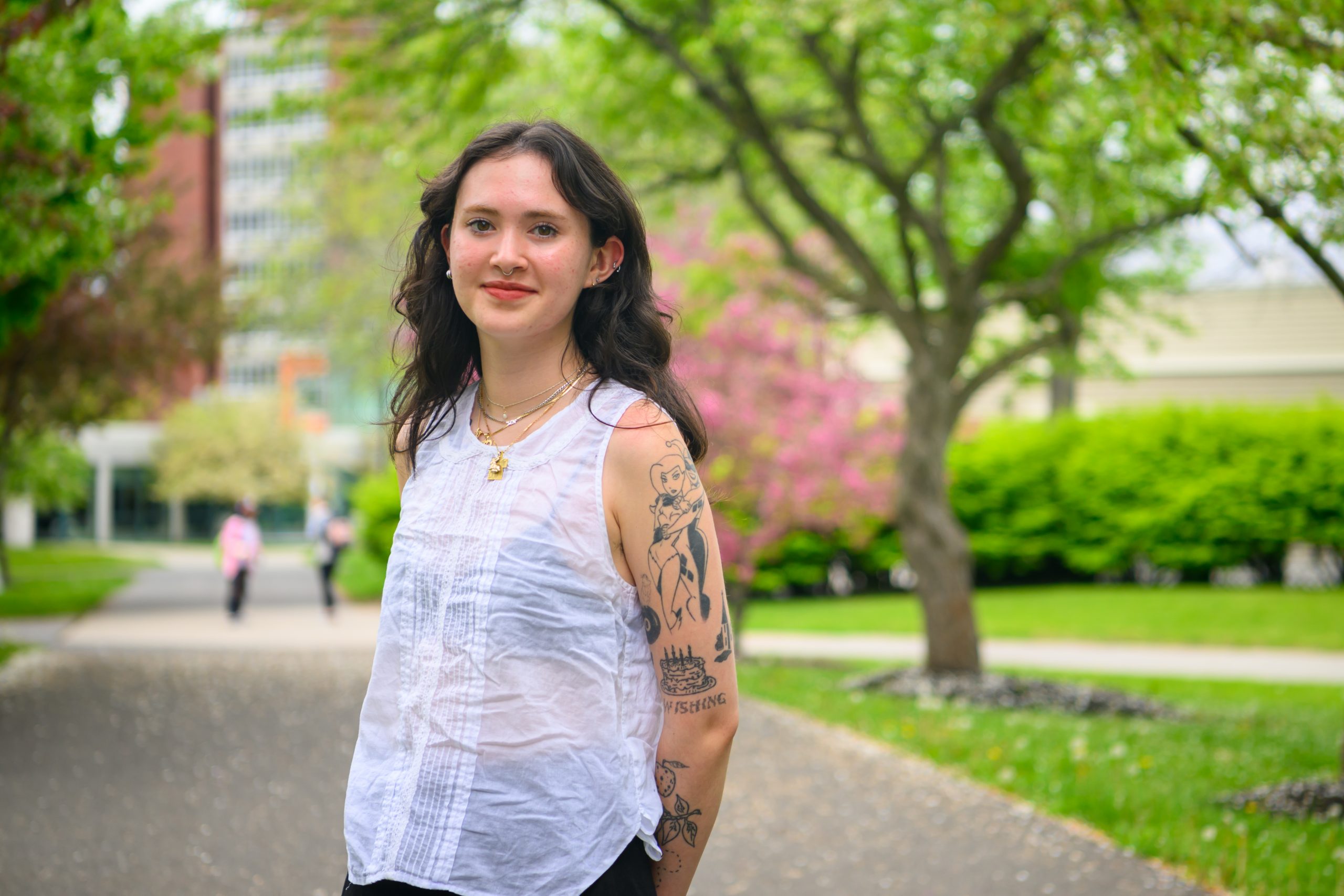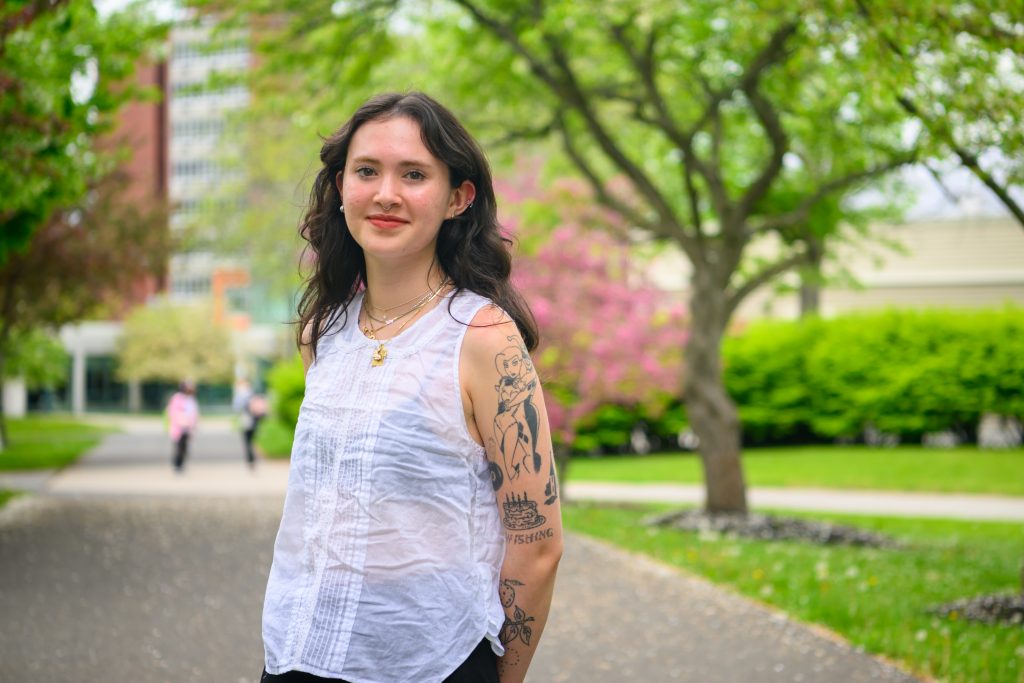Sen Oglesby named Salutatorian of SUNY New Paltz’s Class of 2024
Sen Oglesby ’24 (Sociology—Criminology) recalls a single class that not only transformed their experience at SUNY New Paltz, but also changed the way they see the world and their place within it.
Oglesby (who uses they/them pronouns) will serve as Salutatorian of the Class of 2024 and address fellow graduates at Commencement on May 19. Their class with Assistant Professor of Sociology Anna Gjika was the turning point that led to an academic career spent studying potential reforms of the U.S. criminal justice system.
“Critical thinking will get you farther than anything else in the world,” they said. “At the end of the day, what we define as criminal is defined by us, but if we defined it as one way before, we have the power to define it in a new way going forward. SUNY New Paltz showed me the value in being a worldly, global citizen, and being able to interrogate things and look at things from a nuanced perspective.”
The New York City native has taken on internships and part-time jobs with nonprofit organizations devoted to solving criminal justice issues in the U.S., which enhanced their understanding of the work that goes into affecting social change.
“When you’re doing the work in social justice, it can be broad,” they said. “But these internships showed me how grassroots movements get started from the ground up.”
When it came time to put their learning into practice, Oglesby developed a research project focused on online surveillance through social media platforms. They conducted in-depth interviews to gauge Generation Z’s personal feelings on knowing every move is being watched, and went on to present their findings at the annual Student Research Symposium in May.
“I think my peers generally feel powerless when it comes to the notion of surveillance on social media,” they said. “While normally surveillance occurs when a person in power is watching others who don’t have power, the power dynamics with social media are blurred, which essentially normalizes this behavior.”
While their post-graduation path is open-ended, they know it will be marked by further examination and advocacy on criminal justice issues.
“Whether I decide to go into public policy or continue my studies as a graduate student, all I know is that these issues won’t be solved without new voices involved in change,” they said.


